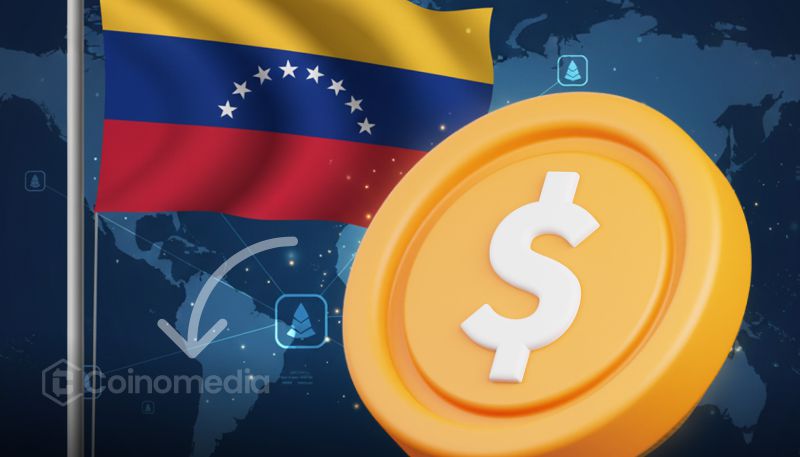Venezuela Turns to Stablecoins Amid Crisis
As war threats grow and sanctions bite, Venezuela is shifting fast toward crypto stablecoins for financial survival.

- Venezuela speeds up adoption of dollar-pegged stablecoins.
- Economic sanctions and war threats fuel crypto pivot.
- Stablecoins seen as financial lifeline amid crisis.
Venezuela is once again at the center of global headlines—but not just for political turmoil. With escalating war threats and U.S.-led sanctions squeezing its economy, the country is ramping up its use of crypto stablecoins, especially those pegged to the U.S. dollar, as a means to stay financially afloat.
This strategic shift reflects a growing reliance on digital currencies as a workaround for international restrictions, while offering Venezuelans a more stable alternative to the collapsing bolivar.
Sanctions Push Venezuela Toward Digital Dollars
For years, Venezuela has battled hyperinflation, currency collapse, and international isolation. With U.S. sanctions limiting access to global financial systems, the country has increasingly explored crypto options to bypass restrictions.
Now, with tensions rising along the borders and fears of conflict intensifying, the Maduro government and local businesses are accelerating their embrace of dollar-pegged stablecoins like USDT (Tether) and USDC. These coins offer stability and are easily transacted across borders, making them a valuable tool in a country cut off from traditional finance.
Businesses are reportedly pricing goods in stablecoins, salaries are being partially paid in crypto, and some government transactions are shifting toward blockchain rails to preserve liquidity.
Will Crypto Be Venezuela’s Last Defense?
Crypto isn’t new to Venezuela. Citizens have long turned to Bitcoin and other digital assets to protect their wealth from hyperinflation. But this current move toward stablecoins is more coordinated and urgent.
The government sees stablecoins not just as a hedge against inflation, but also as a lifeline to keep trade and services running. While it’s unlikely to fully replace the national currency anytime soon, the growing role of crypto in the country’s economy could signal a turning point—not just for Venezuela, but for how nations under pressure might use decentralized finance in the future.
As financial and political isolation deepens, Venezuela’s crypto gamble may become its most critical economic strategy yet.



